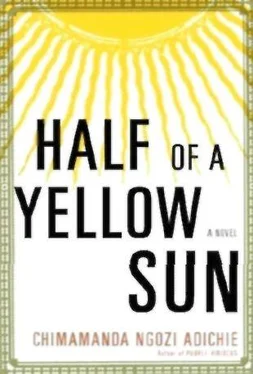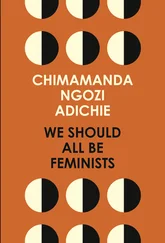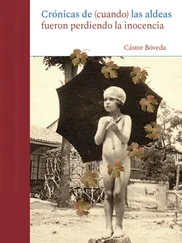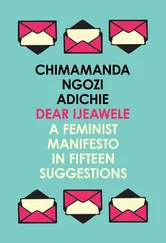And later, as she sat on the veranda waiting for him, she loathed herself for not finding better words. Somebody must have buried her. It sounded so trivial. What she meant was that surely his cousin Anie-kwena buried her. Aniekwena's message, sent through a soldier on leave, was brief: Abba was occupied and he had sneaked back to try and evacuate some property and found Mama lying dead from gunshot wounds near the compound wall. He had said nothing more, but Olanna assumed he must have dug a grave. He could not have left her lying there, decaying.
Olanna no longer remembered the hours of waiting for Odenigbo to come back, but she did remember the sensation of blindness, of cold sheaths being drawn over her eyes. She had worried from time to time about Baby and Kainene and Ugwu dying, vaguely acknowledged the possibilities of future grief, but she had never conceived of Odenigbo's death. Never. He was her life's constant. When he came back, long after midnight, with his shoes covered in mud, she knew he would not be the same again. He asked Ugwu for a glass of water and told her in a calm voice, "They kept asking me to go back, so I parked the car and hid it and began to walk. Finally, one Biafran officer cocked his gun and said he would shoot and save the vandals the trouble if I didn't turn around."
She held him close to her and sobbed. Her relief was stained with desolation.
"I'm fine, nkem," he said. But he no longer went into the interior with the Agitator Corps, no longer returned with lit-up eyes. Instead, he went to Tanzania Bar every day and came back with a taciturn set to his mouth. When he did talk, he spoke of his unpublished research papers left behind in Nsukka, how they were almost enough to make him a full professor, and heaven knew what the vandals would do with them. She wanted him to truly talk to her, help her to help him grieve, but each time she told him, he said, "It's too late, nkem." She was not sure what he meant. She sensed the layers of his grief-he would never know how Mama had died and would always struggle with old resentments-but she did not feel connected to his mourning. Sometimes she wondered if this was her own failure rather than his, if perhaps she lacked a certain strength that would compel him to include her in his pain.
Okeoma visited to pay condolences.
"I heard what happened," he said, when Olanna opened the door. She hugged him and looked at the jagged, swollen scar that ran from his chin to his neck and thought how quickly it spread, news of death.
"He has not really spoken to me," she said. "What he says to me makes no sense."
"Odenigbo has never known how to be weak. Be patient with him." Okeoma spoke in a near whisper because Odenigbo had come out. After they hugged and thumped each other's backs, Okeoma looked at him.
"Ndo," he said. "Sorry."
"I think she must have been surprised when they shot her," Odenigbo said. "Mama never understood that we were really at war and that her life was in danger."
Olanna stared at him.
"What has happened has happened," Okeoma said. "You must be strong."
A short and shabby silence fell across the room.
"Julius brought some fresh palm wine," Odenigbo said finally. "You know, they mix in too much water these days, but this one is very good."
"I'll drink that later. Where is that White Horse whisky you save for special occasions?"
"It is almost finished."
"Then I will finish it," Okeoma said.
Odenigbo brought the bottle and they sat in the living room, the radio turned low and the aroma of Ugwu's soup in the air.
"My commander drinks this like water," Okeoma said, and shook the bottle to see how much was left.
"And how is he, your commander, the white-man mercenary?" Odenigbo asked.
Okeoma darted an apologetic glance at Olanna before he said, "He throws girls on their backs in the open where the men can see him and does them, all the time holding his bag of money in one hand." Okeoma drank from the bottle and scrunched up his face for a moment. "We could easily have retaken Enugu if the man only listened, but he thinks he knows more about our own land than we do. He has started commandeering relief cars. He threatened His Excellency last week that he would leave if he doesn't get his balance."
Okeoma took another swig from the bottle.
"Two days ago I went out in mufti and a ranger stopped me on the road and accused me of deserting. I warned him never to try that again or I would show him why we commandos are different from regular soldiers. I heard him laughing as I walked away. Imagine that! Before, he would never have dared to laugh at a commando. If we don't reorganize soon we will lose our credibility."
"Why should white people be paid to fight our war anyway?" Odenigbo leaned back on the chair. "There are many of us who can truly fight because we are willing to give ourselves for Biafra."
Olanna stood up. "Let's eat," she said. "I'm sorry our soup has no meat, Okeoma."
"I'm sorry our soup has no meat" Okeoma mimicked. "Does this place look like a meat shop? I did not come looking for meat."
Ugwu placed the plates of garri on the table.
"Please remove your grenade while we eat, Okeoma," Olanna said.
He dislodged it from his waist and placed it in the corner. They ate in silence for a while, molding their garri into balls, dipping in soup, swallowing.
"What is that scar?" Olanna asked.
"Oh, it's nothing," Okeoma said, and ran his hand lightly over it. "It looks more serious than it is."
"You should join the Biafran Writers League," she said. "You should be one of those going abroad to publicize our cause."
Okeoma started to shake his head while Olanna was still speaking. "I am a soldier," he said.
"Do you still write?" Olanna asked.
He shook his head again.
"Do you have a poem for us, though? From your head?" she asked, and sounded desperate even to herself.
Okeoma swallowed a ball of garri, his Adam's apple bobbing up and down. "No," he said. He turned to Odenigbo. "Did you hear what our shore batteries did to the vandals in the Onitsha sector?"
After lunch, Odenigbo went into the bedroom. Okeoma finished the whisky and then drank glass after glass of palm wine and fell asleep in the living room chair. His breathing was labored; he mumbled and twice flayed his arms as if to shake some invisible attackers off. Olanna patted his shoulder to wake him up.
"Kunie. Come and lie down inside," she said.
He opened reddened, bewildered eyes. "No, no, I'm really not sleeping."
"Look at you. You were gone."
"Not at all." Okeoma stifled a yawn. "I do have a poem in my head." He sat up and straightened his back and began to recite. He sounded different. In Nsukka, he had read his poetry dramatically, as though convinced that his art mattered more than anything else. Now he had a tone of unwilling banter, but still banter.
"Brown
With the fish-glow sheen of a mermaid,
She appears,
Bearing silver dawn; And the sun attends her, The mermaid Who will never be mine."
"Odenigbo would have said, 'The voice of a generation!'" Olanna said.
"What would you say?"
"The voice of a man."
Okeoma smiled shyly, and she remembered how Odenigbo teased her about his being secretly infatuated with her. The poem was about her, and he had wanted her to know it. They sat in silence until his eyes began to close and soon his snoring became regular. She watched him and wondered what he was dreaming about. He was still sleeping, often mumbling and rolling his head from side to side, when Professor Achara arrived in the evening.
"Oh, your friend the commando is here," he said. "Please call Odenigbo. Let's go out to the veranda."
Читать дальше












